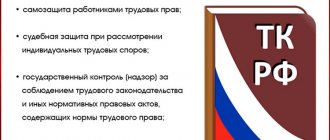Things to consider
When preparing a seasonal employment contract, it is necessary to take into account some of the features of this document, which are regulated by the Labor Code and some other legal acts.
The definition of seasonal work and its duration is contained in Article 293. Labor Code. Employment contracts with seasonal workers are concluded on a general basis, but with some features prescribed in Art. 46 of the Labor Code.
So, according to Art. 239 of the Labor Code, it is necessary to take into account the exact start date of work and duration based on local acts approved by the employing company. If there are none, then the date according to Government Decree No. 382 is indicated as the basis for indicating the start date of cooperation with the employee.
The duration of the agreement is determined by agreement of the parties. In addition to the terms, the employer is obliged to indicate the reason for concluding a seasonal contract. According to Art. 59 of the Labor Code, the basis for signing an agreement of this type is “performing seasonal work, when work can only be carried out during a certain time period (season).” According to Art. 294 of the Labor Code of the Russian Federation, a condition regarding the seasonal nature of the work performed must be included in the contract.
The employer should also take into account in the process of preparing the contract:
- List of seasonal work according to NKT Resolution No. 186 , the latest edition of which dates back to 1988.
- List of seasonal sectors in industry No. 381 , approved in 1991.
- List of seasonal work No. 382 , which are used in taxation, as amended in 2014.
- List of works where work is counted as a full working year , No. 498 of 2002, as amended in 2014.
Seasonal contracts mean contracts that are concluded with employees to perform seasonal work for a period of 6 months or more. Such contracts can be considered as a type of fixed-term employment contracts.
Leave for seasonal workers
Despite the fact that seasonal work involves concluding an employment contract for a certain period of time, the so-called fixed-term employment contract, seasonal workers, like permanent employees, have the right to apply for paid leave. We will talk about the features of providing leave to seasonal workers in this article.
Section is devoted to the peculiarities of labor regulation of certain categories of workers. XII Labor Code of the Russian Federation (hereinafter referred to as the Labor Code of the Russian Federation), Ch. 46 of which the specifics of labor regulation for workers engaged in seasonal work are established.
Seasonal work is work that is performed during a certain period (season) due to climatic and other natural conditions. The duration of the season, as a rule, does not exceed six months (Article 293 of the Labor Code of the Russian Federation). Meanwhile, sometimes the duration of seasonal work can exceed six months. Lists of seasonal work, including individual seasonal work, which can be carried out over a period (season) exceeding six months, and the maximum duration of these individual seasonal works are determined by industry (inter-industry) agreements concluded at the federal level of social partnership.
Examples of Industry Agreements include:
- Industry agreement on the timber industry complex of the Russian Federation for 2020 - 2020, approved by the All-Russian industry association of employers “Union of Timber Industrialists and Timber Exporters of Russia, Trade Union of Forestry Workers of the Russian Federation on December 26, 2014;
- Industry agreement on organizations of the timber industry complex of the Russian Federation for 2020 - 2020, approved by the Trade Union of Forestry Workers of the Russian Federation, the All-Russian Industry Association of Employers of the Pulp and Paper Industry, the All-Russian Industry Association of Employers of the Furniture and Woodworking Industry on December 19, 2014;
- Federal industry agreement on automobile and urban ground passenger transport for 2014 - 2020, approved by the All-Russian Trade Union of Automobile Transport and Road Workers, the Non-Profit Organization Russian Motor Transport Union on October 24, 2013;
- Industry tariff agreement in the housing and communal services of the Russian Federation for 2014 - 2020, approved by the Ministry of Regional Development of Russia, the All-Russian industry association of employers “Union of Utility Enterprises”, the All-Russian Trade Union of Essential Workers on September 9, 2013.
To determine the categories of work classified as seasonal, you can be guided by the List of seasonal work, approved by Decree of the People's Commissariat of Labor of the USSR dated October 11, 1932 N 185. According to this List, seasonal work includes, in particular, icebreaking work, snow and ice removal work , logging, rafting and related work, peat work. In addition to this List, employers may be guided by:
- A list of seasonal industries in which work in organizations during a full season when calculating the insurance period is taken into account so that its duration in the corresponding calendar year is a full year, approved by Decree of the Government of the Russian Federation of July 4, 2002 N 498;
- A list of seasonal work and seasonal industries, work in enterprises and organizations of which, regardless of their departmental affiliation, for a full season is counted towards the length of service for a pension for a year of work, approved by Resolution of the Council of Ministers of the RSFSR dated July 4, 1991 N 381;
- The list of seasonal industries and types of activities used when granting a deferment or installment plan for tax payment, approved by Decree of the Government of the Russian Federation of April 6, 1999 N 382.
Since seasonal work implies the establishment of an employment relationship only for a certain period, a fixed-term employment contract is concluded with employees hired to perform it, as follows from Art. 59 Labor Code of the Russian Federation.
Please note that the general provisions of labor legislation on fixed-term employment contracts apply to employment contracts with seasonal workers, with some features established by Chapter. 46 Labor Code of the Russian Federation.
So, according to Art. 294 of the Labor Code of the Russian Federation, when concluding such an employment contract, it must necessarily provide for a condition regarding the seasonal nature of the work. If the contract does not contain a provision regarding the seasonal nature of the work, then it is considered concluded for an indefinite period. This means that the specifics of labor for temporary workers in this case do not apply even when the work can be objectively classified as seasonal.
The validity period of an employment contract for seasonal work is determined by agreement of the parties, but, as a rule, does not exceed 6 months.
In general, a fixed-term employment contract is terminated upon expiration of its validity period. An employment contract concluded to perform seasonal work during a certain period (season) is terminated at the end of this period (season). The employee must be notified in writing of the termination of the employment contract at least three calendar days before dismissal (Article 79 of the Labor Code of the Russian Federation).
It should be recalled that during the entire term of the employment contract, this contract can be terminated at any time by agreement of the parties. This rule is provided for in Art. 78 of the Labor Code of the Russian Federation and applies to all types of employment contracts - both fixed-term and concluded for an indefinite period.
If the initiator of early termination of the employment contract is an employee, then this employee is obliged to notify the employer about this in writing three calendar days before dismissal (Article 296 of the Labor Code of the Russian Federation).
If an employment contract concluded with a seasonal worker is terminated by the employee due to the liquidation of the organization, reduction of its number or staff, then the employer is obliged to notify the employee of the upcoming dismissal in writing, against signature, at least seven calendar days in advance.
Note! A fixed-term employment contract with a pregnant woman cannot be terminated. Article 261 of the Labor Code of the Russian Federation establishes that in the event of expiration of a fixed-term employment contract during a woman’s pregnancy, the employer is obliged, upon her written application and upon presentation of a medical certificate confirming the state of pregnancy, to extend the term of the employment contract until the end of pregnancy, and if she is granted leave in the prescribed manner for pregnancy and childbirth - until the end of such leave.
Taking into account the provisions of Part 2 of Art. 261 of the Labor Code of the Russian Federation, a fixed-term employment contract cannot be terminated until the end of pregnancy. The pregnancy status is confirmed by a medical certificate provided by the woman at the request of the employer, but not more than once every three months.
A fixed-term employment contract is extended until the end of a woman’s pregnancy, regardless of the reason for the end of the pregnancy (birth of a child, spontaneous miscarriage, abortion for medical reasons, etc.), as stated in paragraph 27 of the Resolution of the Plenum of the Supreme Court of the Russian Federation dated January 28, 2014 No. 1 “On the application of legislation regulating the labor of women, persons with family responsibilities and minors.”
In the event of the birth of a child, the dismissal of a woman due to the end of a fixed-term employment contract is carried out on the day the maternity leave ends. In other cases, a woman may be fired within a week from the day the employer learned or should have learned about the end of the pregnancy.
According to Art. 114 of the Labor Code of the Russian Federation, every employee has the right to annual paid leave, the minimum duration of which is according to the general rule established by Art. 115 of the Labor Code of the Russian Federation is 28 calendar days.
However, this rule does not apply to workers engaged in seasonal work, since for them labor legislation, namely Art. 295 of the Labor Code of the Russian Federation, there is a special procedure for calculating the duration of vacation and vacation is provided to such employees in working days, and not in calendar days, as in the general case.
So, on the basis of Art. 295 of the Labor Code of the Russian Federation, employees engaged in seasonal work are provided with paid leave at the rate of two working days for each month of work. Therefore, if an employee has worked under a contract, for example, for four full months, then he should be given paid leave of eight working days. If an employee has worked under a contract, for example, for four months and twelve days, then he should be given a vacation of eight working days, since when determining the number of vacation days, surpluses amounting to less than half a month are excluded from the calculation. Surplus amounts of half a month or more are rounded up to the nearest full month. It is precisely this rule that is enshrined in paragraph 35 of the Rules on regular and additional leaves, approved by the People's Commissariat of Labor of the USSR on April 30, 1930 N 169, currently in force in the part that does not contradict the Labor Code of the Russian Federation.
Please note that the organization has the right in its local regulations to establish a different procedure for rounding days worked to calculate the number of vacation days for seasonal employees, but not worsening the general rights of employees.
The amount of vacation pay is calculated based on the employee’s average daily earnings, as established by Art. 139 of the Labor Code of the Russian Federation, as well as the Regulations on the specifics of the procedure for calculating average wages, approved by Decree of the Government of the Russian Federation of December 24, 2007 N 922 “On the specifics of the procedure for calculating average wages” (hereinafter referred to as Regulation No. 922).
The average daily earnings of an employee are calculated by dividing the amount of actually accrued wages for the period of the employment contract by the number of working days according to the calendar of a 6-day working week, as indicated in paragraph. 5 tbsp. 139 Labor Code of the Russian Federation, clause 11 of Regulation No. 922.
× Example. The organization entered into an employment contract with a seasonal worker, according to which the employee was hired from June 1, 2015 to September 30, 2020. In accordance with the terms of the contract, the organization pays him a monetary remuneration in the amount of 60,000 rubles.
The number of working days in terms of a 6-day working week for this period is 104 days (in June - 25 days, in July - 27 days, in August - 26 days, in September - 26 days).
Since the employee worked 4 full calendar months, he was granted 8 working days of leave.
Let's determine the average daily earnings of an employee:
60,000 rub. / 104 days = 576.92 rubles.
Let's calculate the amount of vacation pay:
RUB 576.92 x 8 days = 4615.36 rub.
× Example. The organization entered into an employment contract with a seasonal employee, according to which the employee was hired from June 1, 2015 to August 31, 2020. After some time, the employee wrote an application for early termination of the employment contract, on the basis of which he resigned for family reasons from July 10 2020
For the period worked, the employee was accrued remuneration in the amount of 16,000 rubles.
The number of working days in terms of a 6-day working week for this period is 34 days (in June - 25 days, in July - 9 days).
The organization’s accounting policy establishes that the rounding of days worked by seasonal workers to calculate the number of vacation days is carried out as follows: surpluses amounting to less than half a month are excluded from the calculation. Surplus amounts of half a month or more are rounded up to the nearest full month.
It follows that for the time worked, a seasonal worker should be granted leave of 2 working days.
Let's determine the average daily earnings of an employee:
16,000 rub. / 34 days = 470.59 rub.
Let's calculate the amount of vacation pay:
RUB 470.59 x 2 days = 941.18 rub.
It should be noted that it will most likely not be possible for a seasonal employee to exercise the right to leave while working under an employment contract. Therefore, leave is granted, as a rule, after the expiration of the contract and is formalized as leave with subsequent dismissal. Moreover, on the day of dismissal in this case, in accordance with paragraph. 3 tbsp. 127 of the Labor Code of the Russian Federation is considered the last day of vacation.
Vacation pay is paid based on the employee’s application no later than three days before it begins. This is indicated by Art. 136 Labor Code of the Russian Federation.
Please note that instead of vacation leave upon dismissal, a seasonal employee has the right to receive monetary compensation, which is calculated in the same manner as vacation pay, that is, based on the employee’s average daily earnings (Article 139 of the Labor Code of the Russian Federation, clause 11 of Regulation No. 922), and also based on the number of days of unused vacation upon dismissal (Article 295 of the Labor Code of the Russian Federation).
Compensation for unused vacation is paid to a seasonal employee on the day of his dismissal, that is, on the day of termination of the employment contract, as established by Art. Art. 84.1, 140 Labor Code of the Russian Federation. If the employee did not work on that day, then this amount must be paid no later than the next day after the dismissed employee submits a request for payment.
If a seasonal employee has the right to additional paid leave on the basis of Art. 116 of the Labor Code of the Russian Federation (for example, for work with harmful and dangerous working conditions, irregular working hours), then this leave should be calculated according to the general rules.
For how long is the seasonal contract concluded?
An employment contract with seasonal workers is concluded only to perform certain work for a limited period of time (season).
It is worth noting that, according to Federal Law No. 90, the definition of “seasonal work”, which was previously used in the Labor Code, has changed somewhat. If earlier it was stated here that the term of such an employment contract cannot exceed 6 months, now the phrase “not exceeding” has been replaced by “as a rule, not exceeding.” Literally, this means that the term of an employment contract can now exceed 6 months.
The maximum duration of seasonal work is determined in industry or inter-industry agreements signed at the federal level within the framework of social partnership (under Part 2 of Article 293 of the Labor Code of the Russian Federation).
Seasonal work: regulatory features
Olga Duchenko, lawyer in corporate and arbitration legal practice
Every year, entrepreneurs make the same mistakes related to hiring employees for a short-term period. The most pressing issues remain the classification of work as seasonal, the provision of leave and the payment of compensation for it.
When formalizing labor relations with seasonal workers, companies and entrepreneurs should remember that the legislation provides for a number of features for regulating the labor of such employees. In this article we will look at what jobs are recognized as seasonal, what are the features of hiring, granting vacations, and dismissing such workers. This primarily concerns areas such as harvesting, landscaping, construction, tourism, catering and trade.
Seasonal work is work that, due to climatic and other natural conditions, is performed during a certain period (season), usually not exceeding six months. This definition is contained in Art. 293 Labor Code of the Russian Federation. The main criterion for classifying work as seasonal - its urgent nature - is determined by natural conditions, and nothing else. This distinguishes them from temporary work - work for up to two months (Article 59 of the Labor Code). Temporary work can be separated from seasonal work, if it lasts less than two months, based on the criterion of natural conditions that determine the time-limited nature of the work.
Seasonal nuances
It is possible to register a seasonal worker for a period of more than six months if such a possibility is established by an industry (inter-industry) agreement concluded at the federal level of social partnership. Such agreements establish lists of seasonal work. For example, the Industry Tariff Agreement in the housing and communal services of the Russian Federation establishes seasonal work in the field of thermal energy production. The duration of work in it is equal to the duration of the heating season, which can exceed six months. If there is no agreement in the industry, based on Art. 423 of the Labor Code of the Russian Federation, one can be guided by the List of seasonal work approved by the Decree of the People's Commissariat of Labor of the USSR dated October 11, 1932 No. 185, as well as other documents, for example, Decree of the Government of the Russian Federation dated July 4, 2002 No. 498, Decree of the Council of Ministers of the RSFSR dated July 4, 1991 No. 381, Decree of the Government of the Russian Federation dated 04/06/1999 No. 382.
A dispute about the nature of the work arises, as a rule, when an employee does not agree with the conclusion of a fixed-term employment contract and demands that it be recognized as concluded for an indefinite period. The court may find that the work was seasonal in nature, and on the basis of other evidence. Thus, in the ruling of the Ryazan Regional Court dated November 28, 2007 No. 33-1637, the court found that the structural unit in which the plaintiff worked was a processor of potatoes - an agricultural product whose shelf life according to GOST 28372-93 does not exceed seven months - and in From June to August, the division’s activities were suspended due to a lack of raw materials. Since the plaintiff’s job responsibilities were related to the processing of this raw material, the availability of which depends on climatic conditions, the court concluded that the work was seasonal in nature.
At the same time, the burden of proving the validity of concluding a fixed-term employment contract or the seasonal nature of employment lies with the employer, who must confirm the validity of concluding a fixed-term employment contract with the employee by objective circumstances. Thus, in the ruling of the Perm Regional Court dated July 20, 2010 in case No. 33-6089, the dismissal of the plaintiff due to the expiration of the period for which a fixed-term employment contract was concluded was declared illegal: the court came to the conclusion that there were no circumstances for which the employment relationship with the plaintiff could have been established for a certain period, since the defendant guarded property, including the hospital complex, on an ongoing basis and this work is not temporary or seasonal. At the same time, the court considered the validity of the employer’s conclusion of a fixed-term employment contract unproven, since the latter, as evidence, referred only to its own local normative act - an order. Also, the Supreme Court of the Russian Federation, in its ruling No. 5-Врп98-340 dated November 13, 1998, indicated that the rental of premises in which an employee performs a labor function is not evidence of the seasonal nature of the work.
Arbitrage practice
It is necessary to distinguish between the seasonal nature of work and seasonal demand for products produced by the organization. Thus, in the ruling of the Perm Regional Court dated April 18, 2011 in case No. 33-3685, the latter indicated that since the defendant did not provide evidence that the increase in production was obviously temporary, lasting no more than a year, the company had no grounds for concluding plaintiff of a fixed-term employment contract. At the same time, in order to justify the possibility of concluding a fixed-term employment contract, the defendant’s arguments boiled down to the fact that there was a demand for spring products depending on the season, and therefore a fixed-term employment contract was concluded with the employee.
In the above case, when demand for products increases, the employer has the right, by local regulations, to establish for employees with piecework-bonus wages a summary accounting of working hours for the period of increased demand for products. According to Art. 104 of the Labor Code of the Russian Federation, when, due to the conditions of production (work) of an individual entrepreneur, in the organization as a whole, or when performing certain types of work, the daily or weekly working hours established for a given category of workers cannot be observed, it is allowed to introduce summarized recording of working hours so that so that the duration of working hours for the accounting period (month, quarter and other periods) does not exceed the normal number of working hours. The accounting period cannot exceed one year. The procedure for introducing summarized recording of working time is established by the internal labor regulations.
For example, the Supreme Court of the Udmurt Republic, in a cassation ruling dated March 21, 2011 in case No. 33-863/11, recognized as legal the employer’s actions to introduce internal labor regulations of a 6-day working week with a working day of 8 hours a day (48 hours a week) from April 1 to September 30 for workers performing seasonal work. Thus, the criterion for determining the seasonal nature of work is the connection with natural conditions; lists of work are established by industry agreements; Soviet acts are applied retrospectively; in the absence of a list, the court has the right to examine the nature of the work and establish its seasonal nature.
Registration and terms of the employment contract
In addition to the general provisions, the employment contract must include the following information.
1) An indication of the urgent nature and duration of the contract - can be determined by a calendar date or the occurrence of a certain event (the end of the harvest, the end of the ice drift, the end of the season, etc.). It should be noted that the general provisions of labor legislation on fixed-term employment contracts with a number of features established by Chapter. 46 Labor Code of the Russian Federation.
2) An indication that the work is seasonal. If the employment contract does not contain a provision regarding the seasonal nature of the work, then it will be considered concluded for an indefinite period.
A probationary period of no more than two weeks can be established if the validity period of the contract exceeds two months (Part 6 of Article 70 of the Labor Code of the Russian Federation).
Entry into the work book is completed in the general manner if the employee is hired for a period of more than five days. The urgent nature of the work should not be indicated in the entry; this is not provided for in clause 3.1 of the Instructions for filling out work books. The employment order indicates the seasonal nature of the work.
The law does not establish special regulations for the remuneration regime for seasonal workers. A tariff system of remuneration may be established, piecework, time-based or mixed, taking into account the nature of the work and other factors.
It is necessary to take into account that employees with whom a fixed-term employment contract has been concluded to perform seasonal work are subject to all the guarantees provided to employees under an employment contract concluded for an indefinite period. Thus, the Novosibirsk Regional Court, in a cassation ruling dated September 30, 2010 No. 33-5848/2010, declared illegal the inclusion in an employment contract concluded for seasonal work of conditions establishing a 60-hour working week and ordered the employer to pay for work time in excess of the established normal working hours. weeks according to the rules established by the Labor Code of the Russian Federation for payment of overtime work.
Right to vacation
According to Art. 295 of the Labor Code of the Russian Federation, seasonal workers have the right to paid leave. It is provided at the rate of two working days for each month of work. This norm appeared in domestic labor legislation only in 1991. Before this, seasonal workers did not have the right to leave, which was recognized by the Committee on Constitutional Supervision as contrary to the Constitution of the USSR. Vacation may be granted with subsequent dismissal, and if the duration of the vacation exceeds the term of the employment contract, the day of dismissal will be considered the day the vacation ends (Part 2 of Article 127 of the Labor Code of the Russian Federation).
Vacation payment is carried out in accordance with clause 11 of the Regulations on the specifics of the procedure for calculating average wages, approved by Decree of the Government of the Russian Federation of December 24, 2007 No. 922. The average daily earnings are determined (the ratio of the amount of actually accrued wages to the number of working days according to the calendar of a six-day working week, per working hours worked) and multiplied by the number of working days of vacation to be paid. If a seasonal employee has the right to additional paid leave on the basis of Art. 116 of the Labor Code of the Russian Federation (for example, for work with harmful and dangerous working conditions, irregular working hours), then such leave should be calculated according to the general rules. Typically, seasonal employees do not take vacations. A seasonal employee who does not use vacation has the right to compensation.
Termination of an employment contract
An employment contract with a seasonal worker is terminated due to the expiration of its validity period (clause 2, part 1, article 77 of the Labor Code of the Russian Federation). The employee must be warned in writing about the termination of the employment contract no later than three days in advance (Part 1 of Article 79 of the Labor Code of the Russian Federation). If, upon expiration of the specified employment contract, neither the employee nor the employer demanded its termination and the employee continues to work, then the condition on the fixed-term nature of the employment contract loses force. Such an employment contract is subsequently considered to be concluded for an indefinite period, as indicated by Art. 58 Labor Code of the Russian Federation.
If the employee is pregnant, the employment contract is extended until the end of the pregnancy (Part 2 of Article 261 of the Labor Code of the Russian Federation). In case of illness, the employment contract is not extended, but the employee retains the right to temporary disability benefits (Article 183 of the Labor Code).
An employee has the right to resign early at his own request. In this case, he must also notify the employer no later than three days in advance (Article 296 of the Labor Code). If an employee is dismissed due to downsizing or liquidation of the organization, he must be notified no later than seven days in advance; he is paid compensation in the amount of an average two-week salary.
Taking into account the above-mentioned features of regulating the labor of seasonal workers will help avoid labor disputes with them. The employer must remember that if the documents are completed incorrectly and the employee decides to challenge the dismissal, then if the employee is reinstated, the employer will be obliged to pay him compensation for the time of forced absence, reimburse the cost of the services of his representative, and pay compensation for moral damages. Violation of labor legislation may also result in the employer being brought to administrative liability in the form of a fine of 30,000 to 50,000 rubles.
How to apply
An employee is hired under a seasonal employment contract on a general basis. Upon employment, the employee provides the employer with the necessary documents under Art. 65 Labor Code. The employer must first approve the duration of seasonal work, as well as the number of workers he needs for the season according to the staffing schedule.
An employment contract is concluded in writing with the issuance of an order for employment. The peculiarity of the order will be that it must indicate the seasonal nature of the work. Based on the results of signing, an entry is made in the employee’s work book and in other personnel documents (personal card).
Taking into account changes to the Labor Code according to 90-FZ, Part 2, Art. 294 has lost legal force. It was stated here that the duration of the probationary period with a seasonal worker cannot exceed 2 weeks. Now, seasonal employees are subject to the general rules for establishing a probationary period - no more than 3 months. But the employer is not obliged to establish a probationary period and can sign an agreement without it.
Seasonal workers have all labor rights according to the Labor Code of the Russian Federation
For many employers operating in the fishing industry, the spring-summer period is the period for attracting additional workers to perform temporary work. These works are seasonal in nature, and, as a rule, in the territory of a certain region, workers are also attracted from other regions to perform them. At the end of the fishing season, various authorities receive numerous appeals from seasonal workers about violations of their labor rights by employers. Meanwhile, the legal regulation of labor relations with persons employed in seasonal work has a number of features. Seasonal, in accordance with Part 1 of Article 293 of the Labor Code of the Russian Federation (hereinafter referred to as the Labor Code of the Russian Federation), are recognized as works that, due to climatic and other natural conditions, are performed during a certain period (season), not exceeding, as a rule, 6 months. Article 295 of the Labor Code of the Russian Federation establishes a special procedure for granting leave to seasonal workers: “Employees engaged in seasonal work are provided with paid leave at the rate of two working days for each month of work.” In addition, seasonal workers, on the basis of Article 127 of the Labor Code of the Russian Federation, can use vacation with subsequent dismissal (except for cases of dismissal for guilty actions). In this case, the day of dismissal is considered the last day of vacation, even if it extends beyond the term of the employment contract. If a seasonal employee does not use his vacation, he must be paid monetary compensation upon dismissal. Seasonal workers are generally entitled to temporary disability benefits. In addition, for seasonal workers, in cases provided for by law, work for a full season is counted towards their length of service, which entitles them to a pension for a full year of work.
Contracts with seasonal workers are a type of fixed-term employment contracts.
Article 59 of the Labor Code of the Russian Federation directly provides for them the basis for concluding an agreement: “for the performance of seasonal work, when, due to natural conditions, the work can only be carried out during a certain period (season).” The general provisions of labor legislation on fixed-term employment contracts apply to employment contracts with seasonal workers, with some features established by Chapter 46 of the Labor Code of the Russian Federation. The condition regarding the seasonal nature of work, according to Article 294 of the Labor Code of the Russian Federation, must be specified in the employment contract with a seasonal worker. Documentation of labor relations with a seasonal worker is carried out on the general basis provided for by labor legislation for employment. An employment contract with seasonal workers is concluded in writing, on its basis an order (instruction) of the employer is issued on hiring and entries are made in the employee’s work book and other personnel documents. The probationary period for seasonal workers cannot exceed 3 months. The provision for testing an employee in order to verify his suitability for the assigned work must be specified in the employment contract. The absence of a probationary clause in the employment contract means that the employee was hired without a trial. As a general rule, a fixed-term employment contract is terminated upon expiration of its validity period, of which the employee must be notified in writing at least 3 calendar days before dismissal. If the employee, after the expiration of the fixed-term employment contract, actually continues to work and the employer has not demanded termination of the employment contract due to the expiration of its term, then the employment contract is considered to be concluded for an indefinite period. An employee engaged in seasonal work may, on his own initiative, terminate his employment contract with the employer early. The employee must notify the employer in writing about the early termination of the contract 3 calendar days in advance. On the last day of work of a seasonal worker, he must be paid wages and compensation for unused vacation. Thus, in order to avoid negative consequences, before going to work in hard-to-reach areas, citizens must request an employment contract from the employer, one copy of which must remain with the employee, read it carefully, paying special attention to the clauses of the contract regulating the procedure, terms , place of payment of wages and its amount. » src=» » frameborder=»0″ allowfullscreen>
Shape and Features
An employment contract with a seasonal worker must be concluded in writing. There is no regulated form for its conclusion with seasonal employees.
The employer can use the standard form of the employment contract adopted by the organization. At the same time, he should indicate in such an agreement the duration of its validity and the nature of the work performed (seasonal, due to climatic reasons).
A sample fixed-term employment contract for seasonal work can be downloaded here.
What is seasonal work under the articles of the Labor Code of the Russian Federation - legal regulation
Seasonal work is quite in demand in Russia - this most directly applies to the areas of tourism and agriculture. In some industries, the employer cannot provide the opportunity for a large number of workers to work outside the season and their involvement is not necessary. Given the wide distribution, as well as the isolated nature of seasonal work, the legislation provides for separate mechanisms for the legal regulation of such employment.
The most complete standards relating directly to seasonal work are regulated by the provisions of Articles 293-296 of the Labor Code of the Russian Federation, which are included in Chapter 46, which is entirely devoted to this aspect of activity . Thus, these articles establish the following standards:
- Article 293. Its provisions define seasonal work, establishing its maximum possible duration and referring to other regulatory documents and lists.
- Article 294. This article regulates the special procedure for concluding an agreement on seasonal work.
- Article 295. This article establishes vacation standards for seasonal workers.
- Article 296. This article discusses dismissal from seasonal jobs and the special procedure for terminating relationships.
The above articles relate only to the direct application of seasonal work in particular and do not consider the general principles of conclusion that apply to seasonal employment contracts on an equal basis with other types of labor relationships.
Since seasonal work has a strictly defined final period, it is fully subject to the peculiarities of the legal regulation of a fixed-term contract . At their core, seasonal employment contracts are considered fixed-term, with a certain range of features and additional nuances . However, all the provisions of the articles of the Labor Code of the Russian Federation, which consider the procedure for fixed-term labor relationships in general, are also applicable to seasonal work. These are considered by the following articles of the Labor Code of the Russian Federation:
- Art.57. Its provisions consider the procedure for concluding employment contracts in general, and they are also fully applicable to work of a seasonal nature.
- Art.58. The normative principles of this article govern issues related to the duration of the relationship.
- Art.59. This article defines the concept of a fixed-term employment contract and the main legal nuances associated with their use in labor practice.
- Art. 70. It regulates the length of the probationary period both in general and in special cases, which include seasonal work.
- Art.79. Its regulations address issues of termination of an employment contract based on expiration of terms, and are fully applied to seasonal workers.
Legislative standards relating to the basic rights and obligations of workers and employers, the procedure for drawing up contracts, payment and other aspects of labor activity are applied to seasonal workers in full without possible restrictions.
Structure and content
The structure and content of all employment contracts with seasonal workers is determined at the discretion of the parties. But it is advisable to include the following conditions in such an employment contract:
- The name of the document (indicating its peculiarity - seasonality) and the serial number assigned to it, according to the accepted numbering system.
- Place and date of preparation of the employment contract.
- Name and details of the parties: full name, position, details of company documents and personal data of the future employee.
- Subject of the signed agreement: the employee’s place of work, exact address, whether his place of work is his main or additional one; the employee’s working conditions in the company and the degree of his subordination.
- Duration of the employment contract: beginning and end of cooperation, conditions and remuneration, nature of the work.
- Rights and obligations of the parties.
- Work and rest schedule.
- Employee social insurance , its guarantees and compensation.
- Responsibility of the parties.
- Terms of termination.
- Additional terms.
- Details of the parties and signatures.
After all mandatory and additional conditions have been included in the employment contract, the documents have been signed by the employee and his employer, it becomes legally binding.
The terms of the signed agreement may be changed only by agreement of the parties, concluded in writing.









